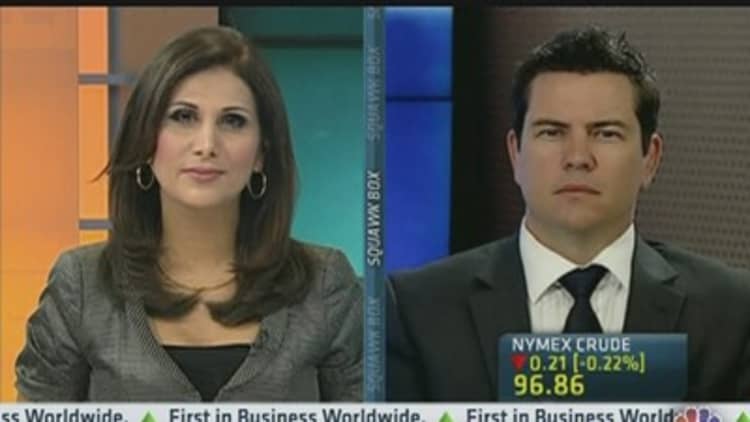The outcome of this week's Bank of Japan (BOJ) meeting will arguably be the most closely-watched in years given high expectations for a radical monetary policy to end two decades of deflation. So, will Japan's central bank deliver or disappoint?
There's no doubt that the stakes are high: the benchmark Nikkei stock index has surged 40 percent and the yen has tumbled more than 15 percent since mid-November on expectations for aggressive monetary easing.
"The run-up in Japanese markets since November has all been about words of intention, the action hasn't happened yet," said Chong Yoon-Chou, investment director at Aberdeen Asset Management. "And we've only just got a new central bank governor, although he is talking the right talk at the moment."
Haruhiko Kuroda became BOJ Governor last month with a mandate from Prime Minister Shinzo Abe to ditch the central bank's cautious approach and adopt bold measures to end the deflation that has dogged Japan's economy for years.
(Read More: How Closely Is Kuroda Emulating Bernanke?)
The central bank kicks off a two-day meeting on Wednesday. Measures economists expect Kuroda to unveil on Thursday, when the meeting ends, include boosting asset purchases, buying longer-dated government bonds and committing to the open-ended purchase of assets immediately.
Kuroda told Japan's lower house of parliament on Tuesday the BOJ would do "whatever it takes" to achieve its 2 percent inflation target. In January, the BOJ bowed to pressure and adopted that target and promised to carry out unlimited asset purchases to kick start the economy from next year.
Japan, the world's third largest economy, has suffered from persistent deflation and has slipped in and out of recession in recent years. The latest closely-watched Tankan business confidence survey showed corporate sentiment remains poor despite a steep fall in the yen.
(Read More: Why Are Japan Manufacturers So Bearish?)

Litmus Test
"What will be a key litmus test will be what he [Kuroda] does in terms of open-ended quantitative easing," Callum Henderson, global head of currency research at Standard Chartered told CNBC Asia's "Cash Flow."
"[Previous BOJ Governor Masaaki] Shirakawa's parting shot to the market was to say this would happen next year. So Kuroda has to bring that forward, the question is does he bring that forward immediately or at the next few meetings?" he added.
Analysts say one risk factor for markets is the fact that the BOJ meets again later this month, so could delay the announcement of some of its policy measures to give Kuroda more time to reach a consensus on the BOJ policy board.
They add that other radical measures the central bank could consider is the purchase of risk assets such as real estate investment trusts (REITS) or exchange traded funds (ETFs) although that's not expected to happen on Thursday.
Nikkei Six-Month Chart
Caution
In a sign that a degree of caution was setting into markets ahead of Thursday's BOJ decision, the yen on Tuesday rose to its highest level in about a month against the dollar and the Nikkei tumbled about 2 percent.
"Expectations have been priced in as to what the BOJ can pull off and now there's some adjustment as to whether they can really deliver that scale of quantitative easing," said Jimmy Koh, managing director, economic-treasury research at United Overseas Bank.
(Read More: Gains in Nikkei – You Ain't Seen Nothing Yet)
Jens Nordvig, global head of currency strategy at Nomura in New York, said a survey conducted by the brokerage last week showed that most clients expected the BOJ to increase its asset purchase program by 10 trillion yen. Under its current program, the BOJ buys about 2 trillion yen ($21 billion) worth of bonds a month.
"They [Nomura clients] also expect the Bank of Japan to really increase the duration of those bonds they are buying to up to 10-year maturities, and I think that's what's expected now," Nordvig told CNBC. "And if he [Kuroda] doesn't deliver that, it will be a disappointment."
- By CNBC.Com's Dhara Ranasinghe; Follow her on Twitter: @DharaCNBC


